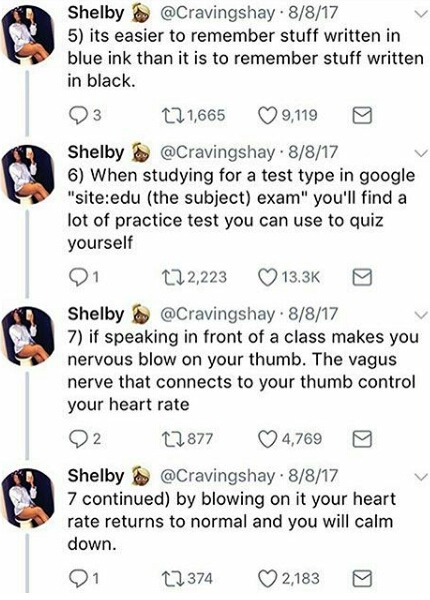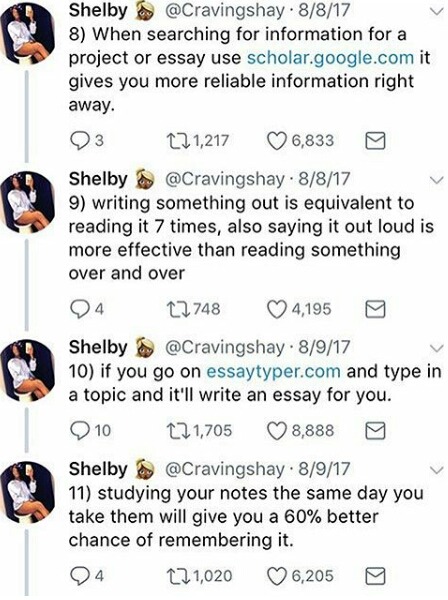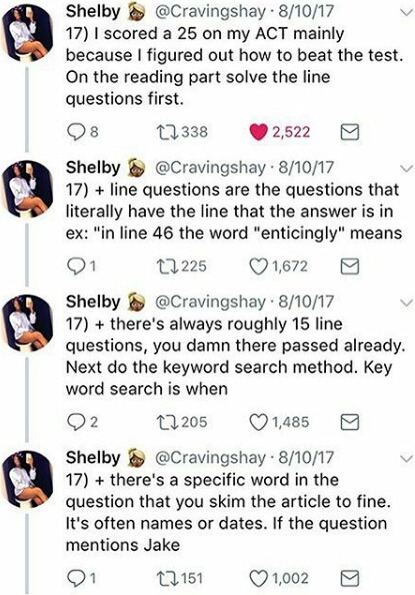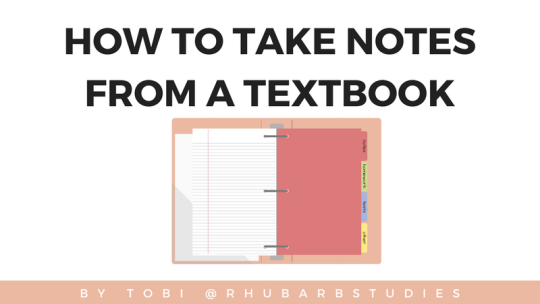langblr | i'm so dead inside it's not even funny anymore
Don't wanna be here? Send us removal request.
Text
anyone know any ways on finding native speakers in your target language to talk to on instagram?
#have tried apps like hellopal#i think that's the name#but honestly i spend so much time on instagram#it would probably be more convenient#langblr
15 notes
·
View notes
Photo

some test-taking tips that might help all of you~
1. purchase at least one practice book and review everything. don’t assume that you know it until you read through and are able to understand everything you read. do practice problems and the supplemental test questions they provide. highlight anything you didn’t know so that you can review it multiple times. a review that really sticks the information into your head is the best type of review, and you can only achieve that when you read it many times! many books will focus on different things, so if money permits, buy another one!
2. make flash cards. even math has definitions you need to know. you have to be able to understand every question in order to score well, and to understand the questions, you need to know the vocabulary. flashcards with history dates, information on chemistry, and biology terms are examples of helpful ways flash cards are easy study tools! quizlet and some other great websites really help with studying vocabulary!
3. take practice tests. practice tests will provide you advantages like: -knowing the test format -an idea of timing -comfortability on answering questions
seriously take tests and time yourself. you’ll know where you stand and how much time you have to spend on certain topics. you can also get a lot of anxiety out of the actual test because you will be very familiar with the testing format!
4. collab with your teachers.
if you ask them questions pertaining to the subject test/topic, chances are your teacher’s going to give you more than you need, which will ease the stress when you’re answering questions. the more you know, the less stress you’ll have, which will really help you do well.
5. don’t be scared. being scared will lower your confidence and increase your anxiety. if you start to panic, you will not be able to think properly. you want to have a clear mind before you start, while you test, and afterwards. therefore, practicing and having confidence will really help!
6. study with friends. studying with others will really help you because others will provide you with lots of resources that sometimes cannot be found online! they will be able to teach you the concepts and quiz you with vocabulary and stats.
7. record your progress! write down what you’ve studied and your level of comfortability with it. this will allow you to observe yourself and slowly build your confidence. you will also be able to gauge how much you do not know. this will force you to study and focus on everything you need to accomplish.
8. plan a reward for after the test. you will seriously want to do well if you promise yourself a gift or a break after acing the exam! i promised to buy myself plants if i did well, and it really motivated me to so well! it really works, especially if you bribe yourself with things you really, really want.
9. have confidence. this is kind of similar to step 5, but it needs to be said! after all this practice and collab work, you’re going to do great! review last minute equations, terms, and concepts the day before going into the test. you will absolutely be fine if you get good sleep, good practice, and confidence.
some things you should bring with you on the standardized testing day:
10. a snack. there will be breaks in between tests/sections. you want to bring a fruit or light snack that will be easy to eat and clean up. fruits are the best option because they will also keep you active!
water. water seems to wake me up when i need a kicker. water will keep your brain-juices flowing! all the concentration you need will flow right back in when you take a sip, trust me!
a sweatshirt. You do not want to be cold and nervous at the same time! if you’re hot, you can take it off, but shivering while trying to solve a math problem or comprehending a shakespeare sonnet will hurt you, not help you!
back up calculator. just do it if you’ve got one! i remember someone bringing an “illegal for testing” calculator and they had to take the test without one. you don’t want it dying in the middle of the test, either.
lots and lots of HB #2 pencils, a large eraser, a silent hand sharpener, and a pen (if it’s the ap exams etc.)
confidence, your brain, all the practice you’ve done!
i really hope all these tips help you guys!!i know i’ve needed these tips to help me, so i’m sharing what’s helped me in the past! any juniors or sophomores worrying about the past, sat, or act, use these wisely! i wish all of you good luck!
3K notes
·
View notes
Photo








“A Thread of Tips” by Shelby
• #16 is missing but to find out more tips, follow her on twitter; be sure to thank her! 😁
201K notes
·
View notes
Text
If you live in a rented apartment
with very old (and ugly) furniture, like me, you know how hard it is to make something ‘pretty’. You can’t invest or change much. That’s why I’m super excited about these self-adhesive decorative foils.
This is my most-used working surface in the kitchen:

It’s tiny, and it’s ugly.
But look at it now!

Guess what, I bought 5 rolls ($2 each). You can imagine what will the kitchen look like when I’m done with it
Anyway, I just wanted to suggest, if you want to change something, and can’t afford or live in a rented place, a self-adhesive decorative foil is a way to go. It’s plastic and has no problem with water or grease. And it’s fun to apply it! :D
41K notes
·
View notes
Photo








For more posts like these, go to @mypsychology
18K notes
·
View notes
Text
How to study hundreds of pages in the shortest time possible
First of all a disclaimer: No, you can not study them in one or two days. But depending on the topic and how fast you can read, you can do it in one or two weeks!
Factors on which your needed time depends on:
How complex the topic is
How long you need to read a page
How fast you can write
How easy it is for you to understand the text
Basic explainations before I go into detail:
There are two ways of studying: global and and analytical studying
Analytical studying means you really go into detail, try to understand every single word and try to get as much information in the topic as possible. You are studying the topic very precisesly and need the small details to understand it. This is great to understand the topic profoundly.
Global studying means you barely go into detail, but rather try to get an overview over the topic, its most important aspects, and the basic connections. This is great to realize what the most important connections and facts of this topic are, and in what relation the facts stand to each other.
Studying in four steps:
1. The first thing you need to do is read through the whole text and make an excerpt. This step will take you the longest, some days or even some weeks. Basically the best way to do this is to follow these steps:
Look through what you have to study. Hopefully it has chapters, if not, try to split it up into chapters of about twenty pages. This amount works at least for me best. If you have a short concentration span, rather make more chapters with less pages. If you have a long concentration span, make less chapters with more pages per chapter.
Set a realistic goal how many chapters you can read and excerpt in a day. Try to stick to this goal. If the text is easy to read and the font a normal size, one needs about one to two minutes to read a page. If it is difficult to understand or a small font, you may need three to five miutes, so keep this in mind when setting your daily goals.
This goal can vary from day to day. If you know that one day you have a long and exhausting lecture, set the goal lower than for a day were you won´t have any distractions.
Make sure you make this plan early enough. The later you do it, the higher is the chance you have not enough days to get through the text!
Now read a chapter and try to understand as much as possible of it. Focus on it as best as possible, because this is one of the most important steps. If you have problems staying focused, here is my masterpost on how to stay focused.
If your concentration is lost after reading this chapter, take a short break. Then, and it is really really important that you only do it afterwards you read the whole chapter, do an excerpt of this chapter. If you do not know what an excerpt is or how to make on, click here.
By doing the excerpt at the end of the chapter, you revise it for the first time already.
Do this for every chapter you need to study. If you have time left, you can revise the excerpts you already made, but your focus should be on getting through the whole text once.
2. Read thoroughly through your whole excerpt. While doing this, try to recall as many details of the original text that you didn´t write down. Not only read the excerpt, but focus on the relations and connections, realize the meaning and consequences of what you are reading, understand their impact on the subject matter and the topic. Don´t learn it by heart, instead understand it and try to comprehend it with a logic that allows you to recall the realtions without studying them intensively. Do this at least once, if you have the time better do it twice. The harder the topic is for you, the more often you should do this step. This step should take you about one or two days.
3. Skim over your excerpt. Set your focus on the keywords you wrote down in colour and try to recall the most important keywords associated with them. If you have enough time, repeat this once or twice, but you do not have to if you feel you are already very good.This step should take you some hours or a minimum of one hour.
4. Skim over the headings and subheadings of your excerpt. While doing this, try to recall the words you focused on in step three. Only the most important keywords, realtions and connections should cross your thought in this step. This step should take you less than an hour.
After step four, you will be prepared for your exam! Just try to calm down, and most importantly, do not try to recall every little detail now. It will only stress you and give you the feeling that you cannot recall them, which is more often than not totally false. Everytime I used this strategy, I could recall most of the details when writing the test! Also do not revise right in front of the test. You will only confuse yourself and start to panic.
The concept behind this method:
Remeber I tought you the basics of global and analytical studying in the beginning? Well, these are exyctly the background for this method.
Step 1 = analytical
Step 2 = semi - analytical
Step 3 = semi - global
Step 4 = global
Pretty easy once you see it this way, right?
Tip for revising
It helps a lot of people to walk around while doing step 3 or 4!
Good luck everyone and hope this helps!
3K notes
·
View notes
Text
Quick tips for writers who are still in the educational system: turn class material into small stories in order to understand it in a way that utilises your strengths. Struggling with putting history into context? Re-tell the story of historical figures in a modern setting. Struggling with understanding how different math equations work? Make characters based on the numbers and symbols write a story that showcases how they interact in a math problem. Not only will this increase your understanding, but it will provide the excuse and opportunity to practice writing and expand your creative mind as well, making it easier for you to think outside the box and take inspiration from what’s around you. There are so many ways in which creative writing can blend with education and course material and there are so many ways you can increase your comprehension of the content by using the possibilities to your advantage. Get creative with your education, people. You have it in you.
2K notes
·
View notes
Text

These are just some ideas I’ve compiled that have worked for me!
1. Quizlet games. I love using the matching game because not only does it force me to actively look for a term’s definition, but it also allows for backwards recall. So by seeing “has both magnitude and direction,” somewhere in your mind is a little voice going “vectors!” This is a good way to test how well you’re able to recall the material regardless of the format it’s given in.
2. Make up rhymes and mnemonics. Little rhymes like “I before E except after C” help with memorization, and “Charles watches TV” is a good mnemonic to use for remembering that Charles’s law has to do with t-t-t-temperature and v-v-v-volume.
3. Physically get up and act it out. This can work for history, literature, physics, biology, etc. For example, if you’re having trouble memorizing the process of exocytosis, pretend to be a particle leaving the cell and stop at different parts of the room so you can understand that stop 1 is the golgi apparatus and stop 2 is the cell membrane.
4. Teach. If you don’t have anyone to explain the material to, you can use stuffed animals or an invisible audience full of ten year-olds. Come up with questions that your “students” might ask and then answer them in a simplified way if possible. Try to think of the best way to explain the material in a clear way. That way, if, on an exam, you happen to get one of those questions you came up with, you’ll be able to explain it in a coherent fashion because you took the time to fully comprehend it.
5. Type up your notes as if you were a tutor making a study guide for your students. You can print these out and possibly bind them or just study from the computer.
6. Annotate PowerPoints if the professor has made them available. This will allow you to build on existing knowledge and to make your own connections.
7. Take old practice exams. This is really helpful for subjects that require calculations, like math or physics, but if your professor gives you old exams to practice with, use them, no matter the subject. They are good indicators of what might show up on your exam in terms of format or content.
8. Study sitting down, standing at a tall desk, in the library, in a park, etc. If it helps, change up your position and/or your location once in a while. It might give you a fresh perspective.
9. Summarize material on one sheet of paper. Just one. The size of the paper depends on how many topics you’re covering. There should be no detailed notes on this page. It should basically have those bolded subtitles you see in textbooks along with quick, supplementary notes on them.
10. Make lists. I find it easier to recall this: Excitatory neurotransmitters: (1) Acetylcholine (2) Norepinephrine
Inhibitory neurotransmitters: (1) Dopamine (2) Serotonin (3) GABA rather than this: “Acetylcholine and norepinephrine are excitatory neurotransmitters, and the inhibitory neurotransmitters are dopamine, serotonin, and GABA.” The two methods might not sound very different because it is the same material after all, but personally, I would rather memorize these from an organized list rather than a sentence. My brain just processes this visually: there are 2 excitatory and 3 inhibitory. That way, if I’m stuck on a question during the exam, I’ll know if I’ve only got 2 out of the 3 inhibitors and that I’m missing one more.
11. Recall old teaching methods. If you’ve ever thought to yourself, “I still remember ___ because of the way my teacher taught it,” these might be the methods that work for you. It might have been a small, interesting fact in history that you remember, or a fun way to memorize the periodic table of elements. Either way, this information stuck with you for a reason. Use those methods to study new material.
2K notes
·
View notes
Text
How I learnt to study
During High school I was one of those students who never really had to work for my marks, I had the uncanny ability to leave my assignment till the night before and still manage full marks that is ..till I got to university, my first year was a disaster I was barely passing my units I was stressed and depressed, what got me through high school was clearly not working in university. So to stop my second year in university from being a disaster as well and to save my gpa I decided to learn how to study from scratch! spoiler: It worked and my marks have tripled since I adopted these habits. So here are the things I started doing!
- I invested in school supplies that I NEEDED and not just for aesthetic, example I bought tons and tons of basic cheap notebooks because I knew I was going to do a lot of writing and things like flashcards. My rule of thumb was if its functional its perfect.
- I attended every lecture and every class no matter what the time was! This is essential as it saves time later when you are rushing around trying to catch up.
- I tried to stay up to date no matter what! Before I would let lecture after lecture pile up but ever since doing this, my study life has been much easier to cope with.
- UNDERSTANDING EVERYTHING YOU LEARN FROM THAT WEEK, I cannot stress how much this has helped me. If I am learning about a topic in week 5, I have to understand it fully in week 5, not when I am in finals week and stressing out. I use resources such as textbooks and the internet to help me understand or I will ask my teacher. The important thing is I understand it fully.
- Be organised! Know when you have an assignment due, there are so many ways to do this. Handheld planner, wall planner, phone reminders, there is apps such as my study life. Anything that will remind you to get started on the thing before it is too late.
- Review your notes weekly or fortnightly!!! Memory works by relearning, instead of cramming the night before exams, review weeks before.
- Break down your essays weeks before its due, you don’t have to start writing them right away but at least start thinking about them.
- Utilise any free time, for example instead of listening to music on my 45 min bus ride to uni I started listening to a psych podcast or doing my readings for that day.
- Have mental health days, I found out how difficult it is to study and how necessary it is to take breaks. Studying is stressful, have days/half days where you relax and look after yourself.
-Cut down on caffeine, I was a serial coffee addict, Im talking 4 shots a cup three times a day. Cutting down reduced my anxiety and got me sleeping more, which improved my mood and energy.
- Have a study buddy/group, find someone who is serious about their study and have study sessions with them, you get to study and have a social life.
- Find a study schedule that suits you, don’t feel pressure to get up at 5 am if you find it easier to study at 6pm.
- Have a study place, that you know you will study in! It can be your local library, your desk, your bed. Anything that you find will work for you!
14K notes
·
View notes
Text
College/Grad School Tip: Smile at your peers while they’re giving presentations. I know that class presentations can be boring to sit through, but presentations are always hard to give even if you’re an experienced public speaker. One friendly face can make the whole crowd seem more open and help people feel more confidence. We’re all experiencing academia together, so let’s all support each other.
41K notes
·
View notes
Note
any tips on desk set up?
Hey hey! My essentials would be:
an inbox/outbox - I kinda wish I had one but haven’t found one I really like yet! It would be great for keeping my desk organised in terms of random, strewn papers! However, if you don’t have much room, I’d perhaps recommend utilising your wall space! Folders like theseare fantastic alternatives to having a large box taking up space.
bookstands - it is great to have for either storing books/papers or to avoid them taking up space when using them. I use this one.
uplifted shelves - this little shelf from Ikea is what I have on my desk. I put some books, task pads, etc underneath and then some random stationery bits on top. It just keeps things organized and out the way without interfering with my whole desk space. Plus, if you get more than one you can screw them together!
stationery pots - I’ve seen a lot of people using large acrylic boxes to house pens but I prefer small pen cups. The selection I keep out on my desk (some goes in my drawer) are divided into groups/types and can be easily moved in and out of the way.
printables - for me, I have 2018 calendars, monthly overviews/calendars, etc from my freebies and my Etsy shop above my desk. They’re so helpful for quick glances and beautifying my desk space!
little plants - they’re apparently great for productivity and they are cute! I think they’re a nice way to add a bit of colour to a desk.
a lamp - always need something to brighten your desk on a night!
Some other links that might be interesting:
my Instagram for desk inspiration
my desk inspiration Pinterest board
my desk organisation Pinterest board
Hope this helps x
222 notes
·
View notes
Photo

Since we’re starting a new year, here’s an updated step-by-step guide on sleeping and waking up early so you can achieve all the resolutions you’ve just set! Hope everyone is having a happy new year! ^_^
THE NIGHT BEFORE

Turn off your devices an hour before sleep. The blue light from your computer and mobile can really disrupt the natural melatonin levels that control your sleep cycle. End the day with some sort of reading, whether that be for leisure or some summary notes at the end of the day.
Swap the tea and coffee for warm milk with honey. If you must, herbal tisanes like chamomile ‘tea’ are soothing. Lavendar essential oils (used as a room fragrance) are also very calming.
Write down a list of what you want to achieve by waking up early. Having a plan motivates you and stops you from crawling back to the warmth of your bed. When the morning you isn’t able to think clearly, let the motivated you make the decisions!
Pick out the clothes you want to wear for tomorrow, and make sure they match the weather! Like with the tasks you want to achieve, it’s not a good idea to let the morning you fumble with clothes and what matches well. Have a jacket or hoodie on hand to keep you from getting back in bed!
Keep your bed reserved for sleeping. Put your smartphone on the other side of the room so that you aren’t tempted to go and check up on your messages on social media. This will reduce the chance that you start a conversation with some night owl friend that ends up continuing past midnight.
Make sure your room is pitch black. This is so that light doesn’t end up disrupting your sleep cycle and so that you condition your body into thinking that it’s time for sleep. Try to sleep without a night light.
Clear your mind. Whether you achieve this by meditating or otherwise, don’t think about anything, lest you stay up tossing and turning. This includes both exciting events tomorrow and sad events from today. Staying up late makes your mind more prone to negative thoughts and anxiety that may be exaggerated. Take anything your mind tells you at night with a grain of salt!
Get either 7.5 or 9 hours of sleep. This is because the brain has sleep cycles that are approximately 90 minutes long, so sleeping past will immediately pull you into the next sleep phase. When you wake up in the middle of deep sleep, you end up feeling groggy and tired throughout the whole next morning.
Roll your eyes up a fraction. Not sure if this will work for you, but I find doing this, just so that your eyes naturally rest as if they’re looking up a little (don’t look up too much) helps me to get to sleep. Possibly related to Bell’s phenomenon, but give it a go!
IN THE MORNING

Reset your sleep cycle by waking at the same time each day. We all have those nights where we absolutely need to finish something by tomorrow but try to keep it constant when you wake. So if you miss the point where you would’ve slept 7.5 hours, go for 6, since you still have a complete sleeping period, and usually that extra hour or so is enough to get the work finished. So don’t think about sleeping in for afternoon classes, because you’ll just feel worse for wear the next time you have morning classes.
Go cold turkey. Willpower is like a muscle, the more you exercise it the stronger it gets. I have tried the gradual method of waking up at 7:30, 7:15, 7:00, etc. but I found the best way is to just so straight to your target wake up time. As long as you sleep early, there shouldn’t be a problem. The first day you feel tired in the middle of the day, but it’s easier than adjusting to a slightly different sleep cycle each day.
Wake up with a full blast of natural light. If your bed is next to a window like mine, then pull up the blinds to let as much natural light in as possible to stop the production of melatonin. This seriously works. I have slept at 2:30am and woken up at 6am refreshed without an alarm.
Set an alarm that you know will wake you up. Whether it be an uplifting song you like or a super annoying alarm bell, choose something that you can associate with waking up in the morning.
Wake up the first time your alarm rings. People who are reliant on their snooze button can diminish the positive effect of a good night’s rest because they are constantly drifting back to sleep only to be abruptly woken up a few minutes later. This causes a shortened, disrupted sleep cycle right before a person starts their day.
Jump out of bed immediately. Don’t lie in bed thinking; you’ll just drift off again.
Have a glass of cold water, but don’t just down a whole bottle in one go, because your kidneys are remarkably good at preventing our electrolyte balance from being thrown out of homeostasis, so downing a heap of water will just make them overwork to reduce the water levels. Best to keep that glass of water next to you as you work and drink a few sips at a time while you are working. If you drink an excess of water, you have diluted the careful balance of electrolytes. Your kidneys will rapidly dump that water to ensure these electrolyte concentrations are not diluted.
Put on your clothes quickly! This one comes from personal experience. Doing it quickly is like a burst of energy to get you going for exercise.
Finish what you were going to do. Remember that list we wrote last night? Do it now and feel great about doing at least one thing extra this morning.
Don’t have a cup of coffee (yet)! On waking, our bodies stop the production of melatonin and start the production of cortisol to get you going. Cortisol isn’t just for stress, it also starts gluconeogenesis to increase your blood glucose levels (which is important for your brain function) and increases your metabolism. Drinking coffee will disrupt this natural waking hormone, and it also reduces blood flow to the frontal cortex which is responsible for higher order thinking and cognition (source). What this means is that although there is more sugar available, oxygen supply decreases. If you do drink coffee, it’s recommended to drink it around 9:00 or so, after the natural cortisol kicks in.
Have an apple instead. It’s been shown to keep you awake better than coffee!
Exercise. There’s no need for me to explain that this is the best way to feel energized and refreshed for the rest of the day and to get your heart pumping! The morning air is dewy and hasn’t yet been tampered by the smell of car fumes and other pollution, so breath in :) Play some music with beats that will get you moving.
Enjoy the benefits of a job well done. Give yourself a pat on the back, because it’s tiring to get up at 6am or earlier! You’ve got your study space all to yourself, enjoy it with a cup of orange juice, and some peace and quiet. Get to work/uni/school nice and early, ready to learn something new and feel proud that you aren’t one of those groggy students with their heads glued to the table!
Latest MasterPosts: Awesome Things to Look Forward To At College/Uni + Minimalist Studyblr Challenge + Bujo Ideas Masterpost
Follow optomstudies for daily original posts and study masterposts! Links: all originals + langblr posts + 15-part college 101 series + web directory!
3K notes
·
View notes
Text
Productive Things That Aren’t Studying
washing the dishes
making your bed
tidying your book/dvd shelf/shelves
cleaning the cupboard/wardrobe
reading
sleeping
writing a blog
planning your month/week/day
replying to messages or asks
responding to emails
sorting through letters/mail
clearing your email inbox
organising stationery
clean your sinks
clean your toilets
pet your pet
sort through old clothes
give to charity
go on a walk
go on a run
clean down any surfaces
work out
meal prep
get rid of empty shampoo bottles from the shower
clean out old food from the cupboard/fridge
empty out your school bag
call your parent
unfriend/unfollow people you no longer interact with
watch a TEDTalk
empty the bins/trash
clean the mirrors in your house
hug your pet
wash some clothes
buy any birthday cards/presents that you need to
reply to any old texts
make a tumblr post on productive things that aren’t studying
50K notes
·
View notes
Text
mandarin grammar: duplication to mean “every”
so in class today we learned about how you can reduplicate words (usually nouns or measure words) to mean every. we learned three ways of doing this, so i’ll share all of them here
1. n+n 都 (time)
so the most common way of saying every is saying 每. instead of using 每 you can double the noun and add 都 after it (but the noun has to be a single character; it sounds wrong to use two character words for this)
天天 (every day)=每天,月月=每个月 (every month),年年=每年 (every year),周周=每个星期 (every week)
天天都睡不着
I haven’t been able to sleep every day
2. this one has the same structure as the first one, but it’s special
人人 (everyone),家家 (the whole family)
the two listed above are (according to my prof) the only ones that really work for people since single character nouns are pretty rare
3. subject, measure word+measure word 都 vp
this one is kind of weird, but it is used when you want to stress that EVERY object/thing you are talking about is a certain way
to say “all of his books are popular” you’d normally say 她的每本书都很流行, right?
so, if you wanted to say “all of his books are popular” with this pattern you would say 他的书,本本都很流行。
by saying it this way, you are stressing that every book of his is popular. not just one or two, but ALL of them
肉,种种我的狗都爱吃。
My dog loves to eat all kinds of meat.
我的鞋子,双双都是黑色的。
Every pair of my shoes is black.
我们班的同学,个个我都喜欢。
I like everyone in our class.
this third way is really similar to 什么…都 in the sense that they both stress that EVERY object mentioned is the way you described it. however, according to my prof 什么…都 is more commonly used
if i messed anything up please tell me!
730 notes
·
View notes
Photo

In this post, I’m going to talk about the study methods that have worked for me and that I learned during my time at UCLA!
(see another post like this about being healthy here)
Short Term Productivity
Use a stickynote/index card and write a couple goals for today only. Don’t write too many or you will feel overwhelmed! Stick it on your laptop or planner or notebook (somewhere you will see it)
Have a whiteboard at your desk and write down things you need to remember (like a simple equation or some vocab)
While waiting for something (the bus, your coffee, the shower to warm up) have something to recite in your head (probably something you already know, but would like to reALLY KNOW)
When you read, try to tie big concepts to things you would remember easily (like acronyms or symbols) like for example i remember gen chem oxidation as OIL RIG: Oxidation is Loss (of electrons) and Reduction is Gain (of electrons) and I remember the first four unordinary hydrocarbons from Me Eat Peanut Butter (lmao): Methane, Ethane, Propane, Butane
Longer Term Productivity
Plan out your weeks!!! Plan when you will study on each day of the week and keep track of due dates
Make it a habit to do homework/assignments AS SOON AS YOU CAN (like right after you snack or something after classes)
Try not to think about how long you will study and rather think about the number of topics you will study
Don’t stop until you feel confident in your knowledge OTHERWISE YOULL JUST LOSE IT IT ALL
Keep your notes organized because you never know when something is gonna bite you in the butt again in the future
Review everyday. Like, Serioouslyyyy. It helps a lot.
Read before going to bed instead of being on your phone for 400 hours :C I THINK ITS TRUE THAT THE STUFF YOU READ BEFORE BED STAYS WITH YOU BETTER BC YOU GET TO SLEEP ON IT
Try to keep your area quiet or have only white background noise because if someone is talking about the weather and you’re studying math, best believe you’ll only remember the weather
Reading a Textbook
Most of the time, you don’t need to read the introduction paragraphs.
Read the bolded titles to see what you will be getting into
Before class you can skim lightly!! It will help you not feel lost in class
AFTER CLASS you will now FOCUS YOUR READING ON WHAT WAS SAID IN CLASS because most of the time, class-covered topics ARE THE MOST IMPORTANT! save yoself some time!!
When reading after class, do NOT just read. If you go over something that makes you go ??? in even the slightest way, read it again to understand. Look it up. Do it in THAT moment because you’re gonna forget to do it later.
If you don’t wanna read the whole darn book because ur lazy (like me) or you are cramming, READ!! THE!! SUMMARY!!!
The back of the book might have some seriously useful appendixes
Try not to skip the diagrams and pictures lol they’re there for a reason
Taking Notes in Class
dont be on your phone or whatever during class time Like actually PAy attention because if you learn it now, you won’t have to try to learn it again later (you can be on your phone later)
Take down everything written on the boards FOR SURE because if the professor/teacher thinks it’s important to write it, you better think it’s important too
Be an engaged listener! Don’t let it slide straight thru ur head
Try not to scribble your notes so you can read it later
Make CLEAR HEADERS for the topics so you can find those notes quickly
Def make friends in class in case you miss something on the notes ://
Doing Practice Problems and Homework
Get yoUR HOMEWORK DONE FIRST OF ALL
Homework is seriously a great study tool because your instructor assigned that FOR A REASON (aka it’s prob gonna be tested on)
Try to know what you are doing before you start the homework so that you don’t feel lost as heck doing it
When doing practice problems, if you have the answers, don’t be afraid to look at the answer the first time around if you don’t know how to do it. IVE SELF TAUGHT MYSELF SOOOOO MUCH by just looking at the answer to a question.
DONT RELY ON THE ANSWERS THO
Don’t memorize how to do the practice problems, you should memorize the method of solving the problem and understand each step clearly (and understand WHY you do that step!!!) just in case the test pulls some funky stuff on you
The more you can do, the better. But don’t be sleepy and do them because you won’t really retain anything
Other Random Things
My organic chem professor actually did a funny study on sleep and test scores. He said on his final exam he asked “How many hours of sleep did you get last night?”
and like obviously the more hours of sleep reported, generally the higher the student scored on the exam
SLEEEEPING IS GOOD FOR YOUR LEARNING
WHEN YOU SLEEP AND HIT THE REM CYCLE, YOUR BRAIN PROCESSES THE INFORMATION BETTER and it will really stay with you. So yall need to sleep. Don’t do the all nighters. You won’t remember anything
anyways like nike you should Just Do It
I hope you guys find this useful!! Remember that everyone has different needs and preferences, so take these tips as just tips and not rules!! Experiment with things, see what you like best, see what gives you the best scores.
Good luck with everything~ thank you for reading!
11K notes
·
View notes
Text

Taking textbook notes is a chore. It’s tedious and boring and sometimes challenging, but hopefully these tips will help you improve your skill and shorten the time it takes you to do textbook notes!
Give yourself time: Realistically, you can’t knock out 30 pages of notes in 20 minutes. Take your time with textbook notes so they’re a good studying tool in the future. The general rule is to take how many pages you have to do and multiply it by 5: that’s how many minutes it’ll take you to do the notes.
Also, divide you notes up into manageable chunks to increase your productivity. I am personally a huge fan of using pomodoro timers, and I adjust the intervals for however long I need to.
Skim before you start taking notes: If time is an issue, don’t read your 40 page in depth before even picking up a pen, but make sure you know what you’re reading about by skimming a bit ahead of your notes. Read over section titles, and look at charts, maps, or graphs. Writing and highlighting as you read the chapter for the first time isn’t effective because you don’t know if a sentence will be important or not, so make sure you’re reading a paragraph or section in advance before writing.
Use the format they give you in the book to help take your notes: In a lot of textbooks, there will be a mini outline before the chapter itself that shows all the headings and subheadings. Those will be your guidelines! I find this super helpful because long chapters can be daunting to go into without any structure. If you don’t have one of those, use the headings and subheadings provided for you. If you haven’t already been doing this, it will help you so much.
Read actively: It’s so easy to “read” a textbook without digesting any information, but that is the last thing you want to do. Not only does it make taking notes a million times harder, but you’ll be lost in class discussions because you didn’t understand the reading. To keep from passively reading, highlight, underline, star any important information in the book itself.
Have a color coding system for highlighting or underlining and write down a key somewhere (here’s a few that you can adjust for your needs: x,x)
Use sticky notes or tabs to mark any questions or important points to come back to
Summarize important information and paraphrase: When taking the actual notes, don’t copy down full sentences word for word. Not only does writing full sentences waste a lot of time, it’s not an effective way to learn. If you can paraphrase the information, then you understand it. It’s also easier to study notes which are in your own words instead of textbook academia writing.
Be selective: You shouldn’t be writing down every fact that comes up in your textbook. If a fact ties into the bigger topic and provides evidence, then it’s probably something to keep, but you don’t need every piece of supplemental information (but do make sure you always write down the vocab). Learn your teacher’s testing style to help you decide what to write down. Could this be on the quiz/test? If the answer is yes, make sure you write it down.
Learn to abbreviate: Just like writing full sentences, writing out full words will waste time. Implement some shortenings (make sure to use ones that you’ll understand later!) into your notes. Some common ones are: b/c=because, gov=government, w/o=without, and here’s a great list of a ton of examples of abbreviations and shortenings.
Answer margin and review questions: A lot of textbooks have margin questions on every page or so that sum up what’s really important about that information. Make sure not to skip them because they’re really helpful for understanding. Write them down and answer them clearly in your notes. Most textbooks also have review questions after the chapter that check for reading comprehension, so make sure to answer those because they’ll show you if you really understood the chapter.
Don’t skip over visual sources: Maps, diagrams, illustrations, charts, and any other visuals in textbooks are so helpful. If you’re a visual learner, these things will be so essential to you and how you understand what you’re reading. Charts, tables, and diagrams sometimes also summarize information, so if you’re a visual learner it might benefit you to copy those down instead of writing it out.
Add visuals if it’ll help you: As said above, copying down charts, tables, illustrations, or diagrams can be super helpful for visual learners. They’re clear and concise, so pay attention to them.
Write your notes in a way that’s effective and makes sense to you: Mindmaps, Cornell notes, or plain outline notes are all really good forms of notetaking. Find which one works best for you to understand them and which one is most effective for your class, and use it (stuff on mindmaps and cornell notes).
Combine your class and textbook notes: If you rewrite your class notes, add in information you think is relevant from your textbook notes. Mark anything both your book and teacher said were important–you don’t want to forget any of that. If you don’t rewrite class notes, then put stars next to anything repeated.
18K notes
·
View notes
